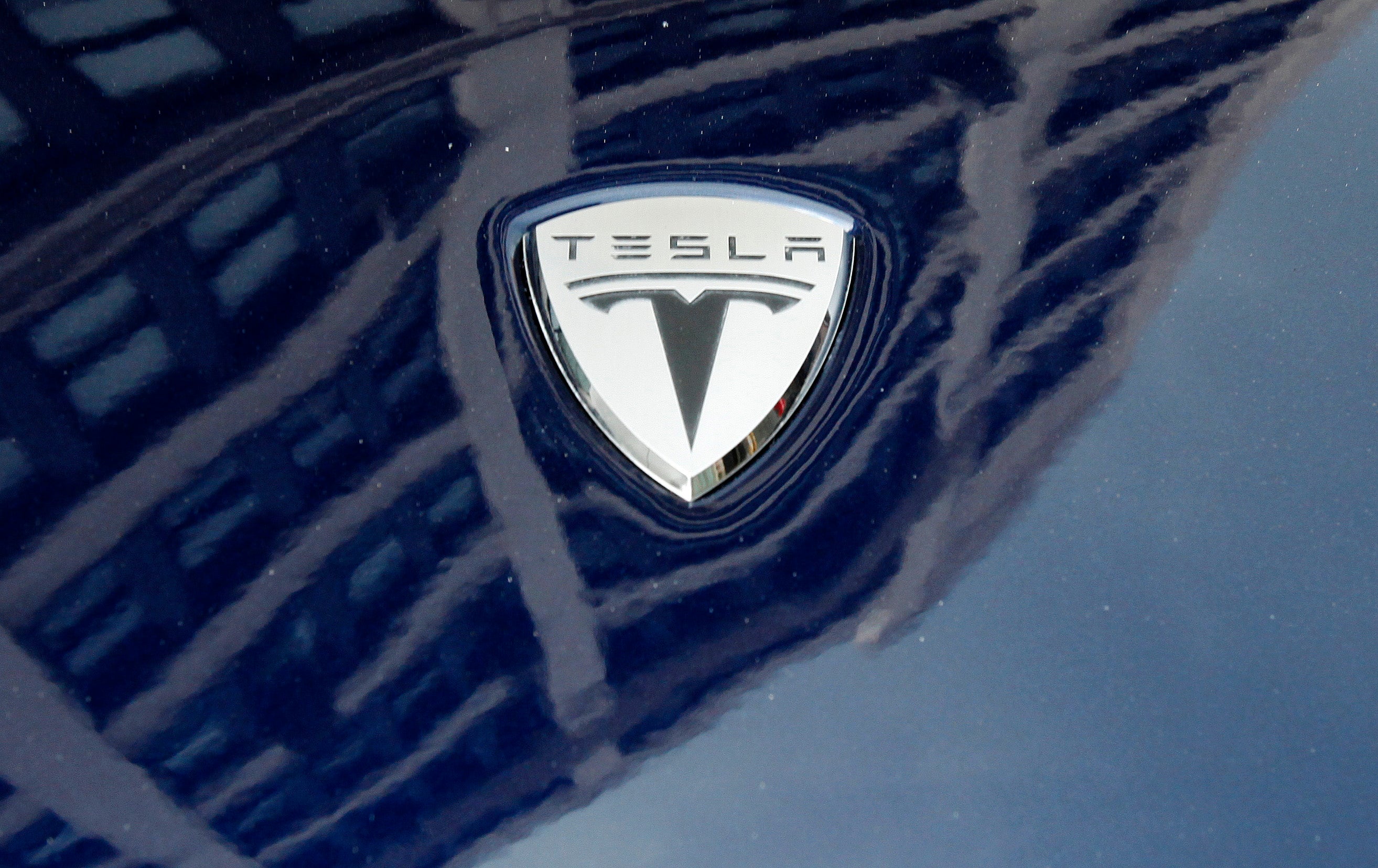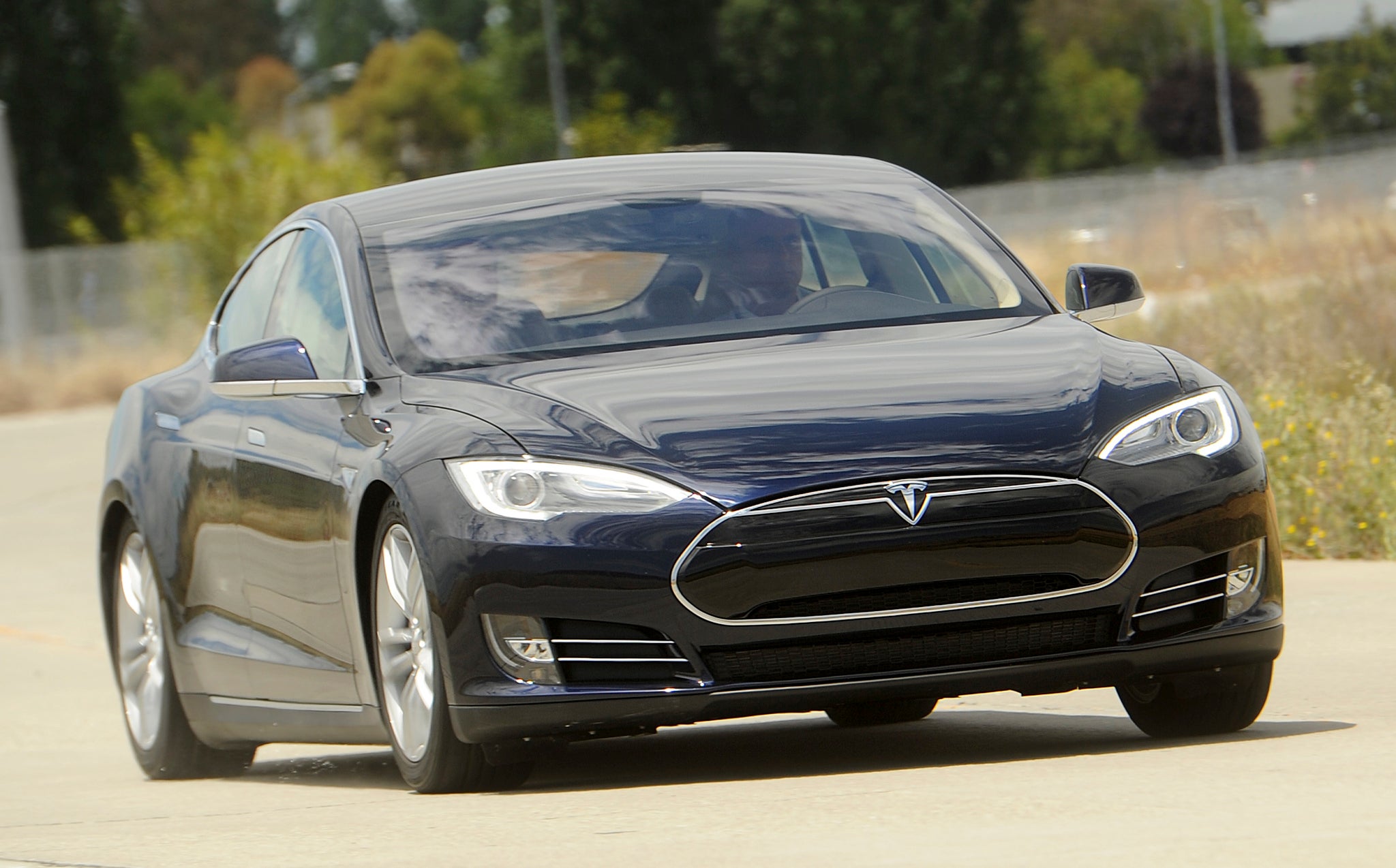Tesla CEO: 'We aim to have self-driving cars within 3 years'
Elon Musk says that the company won't be aiming for full autonomy, but an 'autopilot system' that still requires humans to be paying attention

Your support helps us to tell the story
From reproductive rights to climate change to Big Tech, The Independent is on the ground when the story is developing. Whether it's investigating the financials of Elon Musk's pro-Trump PAC or producing our latest documentary, 'The A Word', which shines a light on the American women fighting for reproductive rights, we know how important it is to parse out the facts from the messaging.
At such a critical moment in US history, we need reporters on the ground. Your donation allows us to keep sending journalists to speak to both sides of the story.
The Independent is trusted by Americans across the entire political spectrum. And unlike many other quality news outlets, we choose not to lock Americans out of our reporting and analysis with paywalls. We believe quality journalism should be available to everyone, paid for by those who can afford it.
Your support makes all the difference.Self-driving autonomous cars could be on our roads within 3 years, Tesla’s CEO Elon Musk has said.
Speaking to the Financial Times Musk confirmed his company’s aspiration to build the first commercial self-drive vehicles – aiming to implement them within the Model S, Tesla’s landmark electric car.
Previously Musk has tweeted: “Intense effort underway at Tesla to develop a practical autopilot system for Model S” and “Engineers interested in working on autonomous driving, pls email autopilot@teslamotors.com. Team will report directly to me.”
During the interview Musk referred to Tesla’s self-drive technology as “an autopilot” that could be switched on an off like an aeroplane's guidance systems. A fully-autonomous car that is entirely under computer control, he says, would be too dangerous with current technology.
Weary drivers were recently tantalised by photos of commuters in futuristic cars watching TV, chatting and looking anywhere but the road.
However, Musk himself admits that this may be a fantasy: “We should be able to do 90 per cent of miles driven within three years,” adding that fully autonomous cars may be “a bridge too far” for the near future.

Tesla is not the only company that are pushing to the self-drive market. Mercedes and Nissan are also looking to take the prize of being the first to have an autonomous car ready for public roads; both have set 2020 as a likely date.
Mercedes took its fully-autonomous S-Class prototype on a 60-mile trip in Germany last month while Nissan showed a prototype self-drive car based on the Leaf at its Nissan 360 event in Arizona.
The idea of a self-driving car has come a long way since the Lexus LS460 jerkily parked its owner into a space a few feet from the curb. BMW has already developed its ‘Proactive Driving Assistant’ that aids the driver by telling him when to brake, accelerate and how far to turn the steering wheel though it doesn’t omit the need for an actual driver.
Tesla’s Model S has had a tumultuous journey to sale, having been blocked in many states by self-proclaimed ‘free-marketers’ hoping to protect more traditional brands. However, in 2013 sales totalled 18,000 units ranking it as third top selling plug-in car and top selling car in the full-size luxury sedan category, beating The Mercedes S-Class.
Join our commenting forum
Join thought-provoking conversations, follow other Independent readers and see their replies
Comments